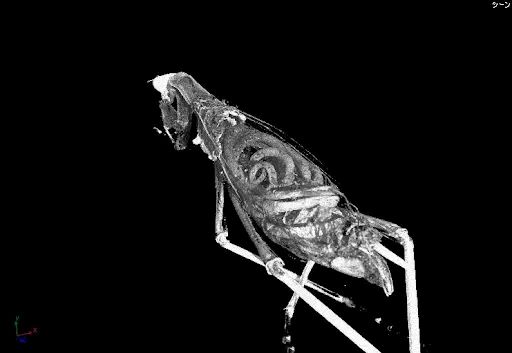Scientists learned how parasitic worms highjack their hosts' free will
After years of study of horsehair worms, which have an extraordinary mind-controlling power over other insects, the scientists working for the University of California’s Integrated Pest Management Program have figured out how these creatures get to manipulate their hosts’ will in a Trojan-horse style.
These parasitic worms, which resemble dark horse hair and are also known as Nematomorpha, steal DNA of insects they want to feast on before driving them to suicide, according to a study published in the November issue of the Current Biology.
Reproduction for hairworms hinges on water, compelling them to coerce their host into a watery environment, ultimately leading to the host's drowning, as described by Takuya Sato, lead author titled of the research titled “Massive horizontal gene transfer and the evolution of nematomorph-driven behavioral manipulation of mantids.”
More to read:
[2 videos] How many neurons a fruit fly may have?
In their larval stage, horsehair worms’ mission is to be consumed (swallowed) by a larger land insect such as a tadpole, mosquito, cricket, millipede, grasshopper, or mantis.
Once inside, the larvae’ shell is dissolved in the insect's digestive juices. It sustains itself by extracting nutrients from the new host for approximately three months and then use their abilities at molecular scale to drive the hosts to self-drown.
Subsequently, the horsehair worms breed and lay eggs in the water, completing the cycle by swimming to a cluster of mating worms after the host's demise.
Genetic insights and mind-control mechanism
The means by which these worms manipulate their hosts involve a clever copycat trick. Researchers explored the genetic code of the horsehair worm species Chordodes fukuii and its favored host, mantises, revealing that the worms mimic chemicals in the host's body, imitating neurotransmitters that are crucial for brain-body communication.
More to read:
Learning from termites: Building better, energy-saving homes
The study disclosed that when Chordodes compels a mantis towards suicide, significant genetic changes occur within the worm's genome. Around 3,200 genes become more active, generating increased protein production, while roughly 1,700 genes become less active. Notably, minimal changes were observed in the mantis' genes.
This disparity provided a pivotal clue - the worms exert control by generating their own chemicals rather than relying on the host's. The ability to produce mind-controlling chemicals is likely acquired through horizontal gene transfer, where the hairworm "steals" genetic material from the mantis.

A horsehair worm inside a mantis. Credit: University of California
This conclusion is reinforced by the discovery that 1,420 Chordodes genes closely match mantis genes.
The researchers propose three potential mechanisms through which horsehair worms manipulate their hosts: manipulating neurotransmitters like dopamine, activating genes that encourage movement towards light, and influencing the host's circadian rhythm to make it more active during the day, increasing the likelihood of finding water reflections.
This happens due to the horizontal gene transfer.
Usually, genetic code transfers vertically from parent to child, but in horizontal gene transfer, the Chordodes hacks the mantis DNA directly.
Thankfully, there are no reported instances of horsehair worms hijacking mind control over humans, the authors stated. Ingesting an insect infested with hairworms is likely to result in some mild intestinal upset, at worst.
That’s because these worms specifically mimic chemicals from their preferred host species, without any ability to control large insects or mammals, the study concludes.
Whether horsehair worms can evolve to hack a mammal genome is an open question.
***
It's rare to see someone donating to support a science blog [PayPal: @newscafeeu / IBAN - RO50BTRLEURCRT0490900501, Swift - BTRLRO22, Beneficiary - Rudeana SRL]. If you do so - thank you dear reader. Otherwise you may click on ad banners on our website. Any help makes us hopeful.







